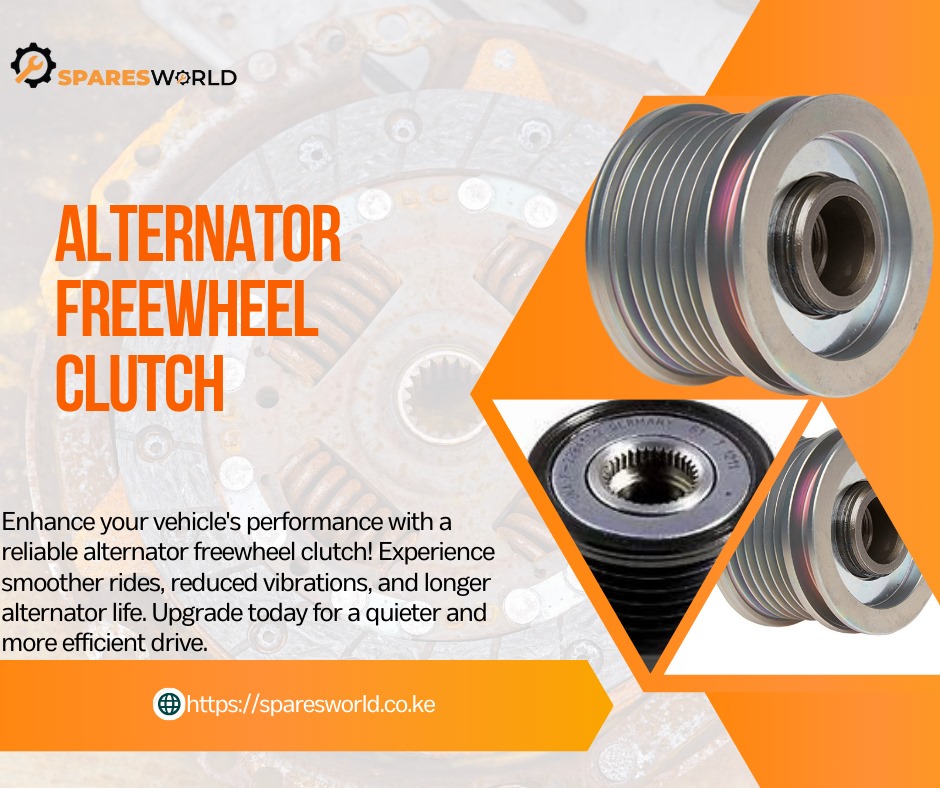Understanding Alternator Freewheel Clutch Functions

Explore the critical role of the alternator freewheel clutch in your vehicle's performance and learn how to spot potential failures before they lead to bigger problems.
The Role of an Alternator Freewheel Clutch in Vehicle Operation
The alternator freewheel clutch is a crucial component in modern vehicles, helping to manage the load on the alternator and ensuring smooth engine operation. It allows the alternator's rotor to freewheel or spin independently when the engine's speed fluctuates, thereby reducing the strain on the alternator and improving overall vehicle performance.
By enabling the alternator to disengage during rapid deceleration or when the engine is idling, the freewheel clutch helps to prevent belt slippage and reduces wear and tear on the vehicle's drive belt system.
How Does an Alternator Freewheel Clutch Work?
An alternator freewheel clutch operates by using a one-way clutch mechanism. This mechanism allows the alternator to rotate freely in one direction while disconnecting in the opposite direction. When the engine accelerates, the clutch engages, allowing the alternator to charge the battery and power the electrical systems.
During engine deceleration or idle, the clutch disengages, allowing the alternator's rotor to spin independently. This helps to reduce vibrations and stress on the drive belt, leading to a smoother and quieter engine operation.
Common Signs of a Faulty Alternator Freewheel Clutch
A faulty alternator freewheel clutch can manifest in several ways. One common sign is a noticeable increase in engine noise, especially during deceleration or when the engine is idling. This noise is often due to the alternator not disengaging properly.
Other signs include intermittent electrical issues, such as dimming headlights or fluctuating dashboard lights, which can indicate that the alternator is not charging efficiently. Additionally, unusual vibrations or a squealing noise from the drive belt area can also be symptoms of a failing freewheel clutch.
The Impact of a Malfunctioning Freewheel Clutch on Vehicle Performance
A malfunctioning alternator freewheel clutch can have a significant impact on vehicle performance. If the clutch fails to disengage properly, it can lead to increased wear and tear on the drive belt, potentially causing it to break or slip off.
Moreover, a faulty clutch can reduce the efficiency of the alternator, leading to inadequate battery charging and electrical system performance. This can result in difficulties starting the vehicle, reduced fuel efficiency, and potential electrical failures that could affect critical vehicle functions.
Maintenance Tips for Ensuring Longevity of Your Alternator Freewheel Clutch
To ensure the longevity of your alternator freewheel clutch, regular maintenance is key. This includes periodic inspections of the drive belt and pulley system to check for signs of wear or damage.
Additionally, keeping the alternator and its components clean can help prevent the buildup of dirt and debris that can affect the clutch's performance. If you notice any signs of a failing clutch, such as unusual noises or electrical issues, it's important to have it inspected and, if necessary, replaced by a professional mechanic.

 Loading..
Loading..